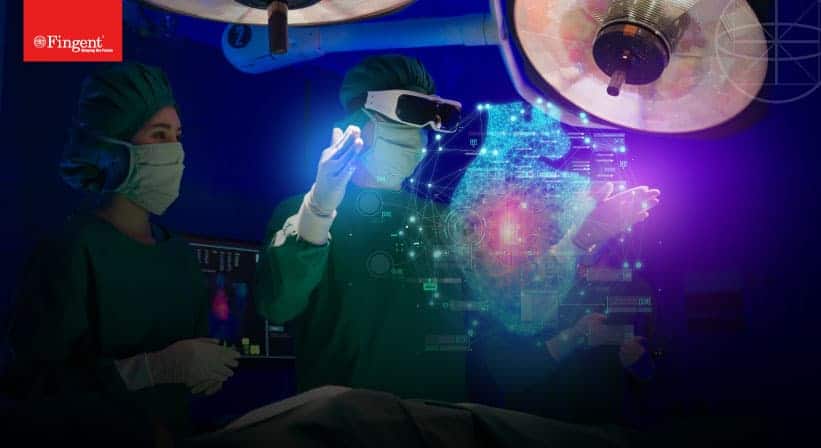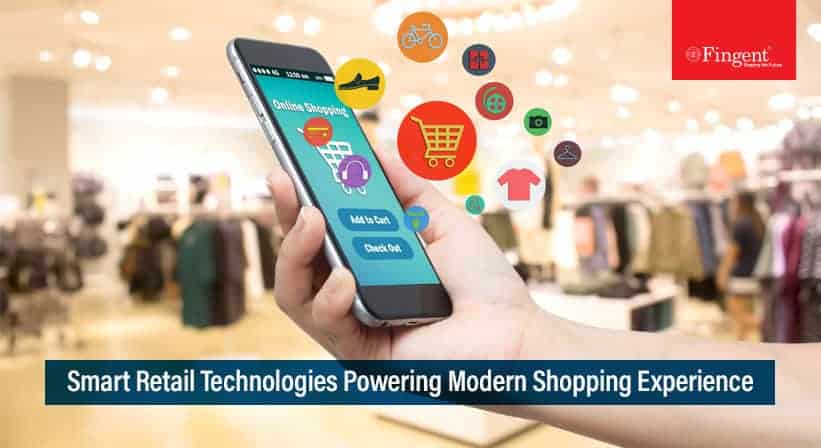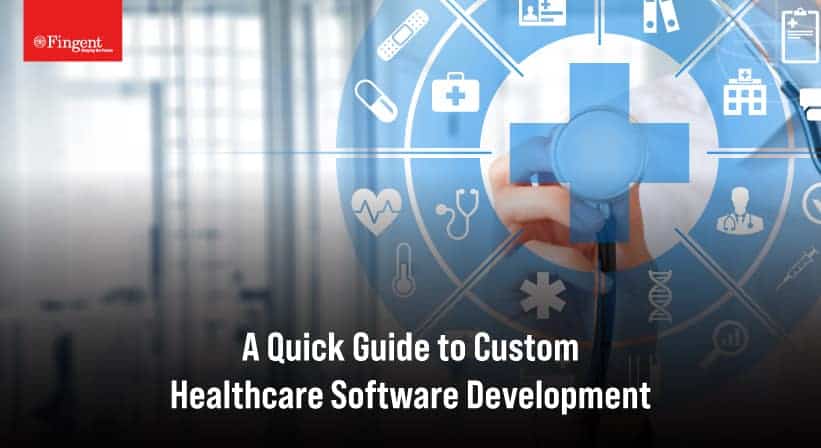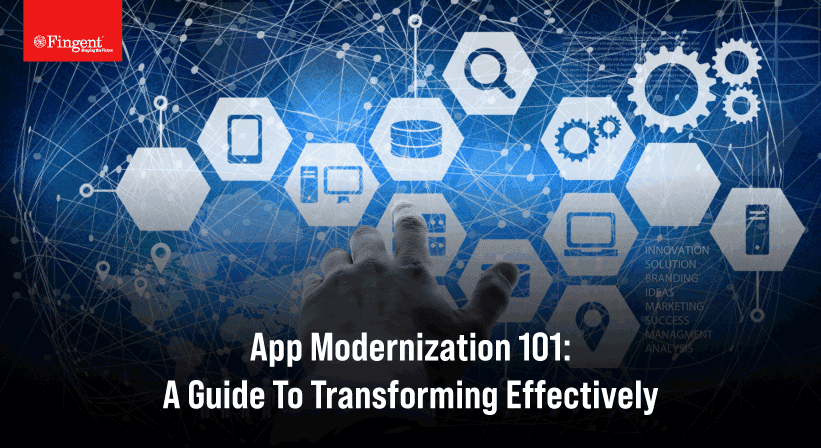5 Transformative Trends Ushered by B2B E-commerce in Healthcare and Life Sciences
How e-commerce adoption benefits B2B healthcare providers and device makers
The healthcare and life sciences industry is expanding at an exponential rate. The complexity and regulatory nature of the industry have made it imperative that technology catches up with its pace and offers solutions to meet this expansion. This need is being felt more acutely at the moment with the COVID-19 pandemic on the loose. As the pandemic spreads its poison and puts the B2B healthcare and life sciences e-commerce market into a state of flux, it forces large and small organizations to cope with a range of problems that include difficult purchase decisions, supply chain disruptions, and fulfillment and delivery issues. This calls for a technological solution tailored to suit the B2B healthcare and life sciences industry.
With over 17 years of experience in delivering customized technological solutions including developing e-commerce platforms for B2B clients, we provide B2B e-commerce web application development services for manufacturers, wholesalers, distributors, and so on. Also, our mobile app development services specialize in the designing and development of custom B2B e-commerce apps.
Case Study: Fingent’s solution for our client Bonanza – Streamlining Online Listing and Inventory Management
In this article, we will explore five specific ways in which B2B e-commerce is that solution and how it will transform healthcare and life sciences.
Immediate and lasting impact on the B2B e-commerce market
In the present scenario, especially from a healthcare and life sciences manufacturing and supply perspective, the impact is immediate throughout the entire supply chain. Manufacturing companies are unable to keep up with the demand, and distributors are rushing to create workflows in an attempt to mitigate customer complaints. Distributors are being forced to claw their way to the front of the line to obtain supplies from manufacturers, stock up on products, and take care of their customers.
Healthcare and life sciences organizations typically have disaster preparedness plans, but dealing with such an unprecedented disaster is another ball game altogether. The question has shifted from purchasing to inventory, from buying to stocking. It makes it challenging to find the space to hold extra products that these industries may need and that causes anxiety to all parties within the supply chain.
B2B e-commerce offers irresistible opportunities for purchasers and medical suppliers
B2B e-commerce works largely on a distribution-based model where customers get their supplies from local distributors or dealers. Thus far, e-commerce has been disrupting the offline system of the B2B industry at a slow pace. However, with the spread of coronavirus and the subsequent lockdown, various industries including healthcare and life sciences are switching to online buying options to prevent human contact. This has resulted in B2B e-commerce experiencing an unprecedented boost in traffic and sales in just a matter of a few weeks.
Read More: Contactless Retail Delivery Software – How Retailers Can Revive Sales While Adhering To Social Distancing Norms
While buyers turn to an online purchase, many suppliers have adapted their strategy to foster online sales, dedicating a certain amount of their budget to digital marketing and communications. The current pandemic is imposing digitization of all B2B businesses that would help to communicate with the buyers and generate sales. Digitization of the supply chain is a crucial aspect of e-commerce because it encourages transparency and shows real-time availability of goods right from the manufacturers to the buyers. This makes it extremely important for suppliers to implement digitization in their supply chain.
The present COVID situation has forced most suppliers to work from home. Those who have already been using digital media are able to manage work remotely. However, others need to think over and plan to reform their business model to adapt to the new era of e-commerce. The pandemic might be temporary, but this trend is not going to be! This is a breakthrough that will continue far into the future. Now is the best time to be innovative, leverage the benefits of the latest digital technology, data analytics, and AI and unlock the potential of digitalization and e-commerce in B2B business. An advanced e-commerce solution built on the latest technology facilitates seamless interactions online across marketing, product discovery, sales, and post-sale service in the B2B sellers’ space.
Read More: E-commerce ERP Software
Five ways B2B e-commerce can be transformative
As B2B e-commerce forges ahead, the healthcare and life sciences industries will prove to be faster adopters than others. They can fully leverage real-time data tracking inventory and logistics between buyers and sellers. For manufacturers and distributors who sell to hospitals and nursing homes, the level of information presented to buyers in the B2B space can depend on the size of the organization or the customer that is doing the transaction. Depending on the frequency of the order, the level of sophistication of information may vary. Shifting to B2B e-commerce will prove to be a much-needed transformation.
Here are five ways that this transformation will be seen:
1. Online Shopping Drives Online Presence
E-commerce is changing the way people and end-users (such as doctors) shop for healthcare products and the way those products reach the hands of customers. Instead of visiting a pharmacy, most customers are turning to the internet to perform the functions of a regular pharmacy. Healthcare and life sciences companies use a business model that features quick delivery to a patient’s door or to hospitals and healthcare centers. Investors see promise in this revolutionary approach to medication fulfillment, demonstrating that the market has confidence in this model despite the shifting healthcare and life sciences landscape.
With more and more people turning to the internet to access products and medical care, the healthcare and life sciences industries have been increasingly concerned with the quality of their online presence. According to an online medical marketplace, 50% of their customers are referred by their primary provider or by hospital staff, and 20% are referred by family or friends. This highlights the need for the healthcare and life sciences industries to increase their online presence and maintain it.
2. Helps explore new possibilities while cutting costs and time
Shifting to an online B2B e-commerce process can help businesses recover 25-30 percent of their investment. Some of the more mature players might even see higher returns of their business through online orders.
Migrating more orders online frees up time for sales reps. They can concentrate on introducing new products and capitalize on opportunities for new business. This allows industry leaders to use their time and ability to explore new channels of business and revenue streams. This can also help expand their client base and move into new markets.
B2B e-commerce enables the healthcare and life sciences companies to see where the business is coming from, where the segments are online and where they are offline. It also gives them the ability to offer variable discounts with certain customers, on certain products, or even just one customer. It will make drug prices more transparent and market-oriented.
Read more: Odoo E-commerce – 5 Reasons to Integrate Your E-commerce Application with Odoo ERP
3. Transforms Logistics Operations
Synchronization of logistic operations is critical for the success of any business. Enterprise customers generally look for reliability, speed, traceability, and convenience in delivery along with effective product returns, and exchange policy of damaged products.
Technology solutions for B2B e-commerce provide orchestration with an application that is to be hosted on an e-commerce website. The open standard in these applications facilitates information exchange that allows real-time visibility for seamless integration across supply chain stakeholders. E-commerce offerings can provide credibility and trust for transactions between companies involved in the supply chain.
4. Enables Customer Personalization
B2B e-commerce enables customer personalization. Enterprise customers want personalized solutions. B2B e-commerce provides a customer portal with content organized around the parameters of their past purchase history and price optimization algorithms that are adjusted on the basis of the relationship. E-commerce offerings are simple, flexible, and convenient. B2B players can use a comprehensive suite of tools that are available to help their customers navigate the site. Certain platforms incorporate live online support to assist with any queries or issues which can improve conversion levels and facilitate buying decisions.
5. Sheer Momentum
Many medical device companies are already selling products online to enterprise customers. The healthcare and life sciences market is ripe for disruption. Medical device manufacturers and pharmaceutical companies will continue to deliver to wholesalers and distributors, but e-commerce allows them to embark on direct-to-patient delivery. Logistics is ready to respond with tailored services for various products. B2B e-commerce is set to propel healthcare and life sciences forward in the extremely near future.
Take Action
Ultimately, healthcare and life sciences e-commerce will facilitate the redistribution of stakeholders’ offline enterprise transformation and reconstruct all the links of the value chain. Realizing the benefits of B2B e-commerce, many healthcare and life sciences companies are becoming believers.
Read more: Top 5 Open-source ERP Systems for Medical Equipment Suppliers
E-commerce can effectively optimize operating processes, reduce costs, manage resource allocations, and address the increasingly diversified consumer healthcare demands. The healthcare and life sciences companies must understand that due to the conditions of accelerated technology change, it has become critical for enterprises to become more skilled in deciding their future course and be firm in taking action. If you need help with this, we at Fingent are here to help you take that next step. Get in touch with us and just let us know what you need.
Stay up to date on what's new

Recommended Posts

20 Jun 2024 Healthcare B2B
AI in Healthcare: Enhancing Patient Outcomes and Experience
Artificial Intelligence is a multi-talented assistant and has proven its worth in the healthcare industry. Healthcare organizations have found innumerable ways to use AI, from record maintenance to patient assistance.……

24 Oct 2023 Retail B2B
Explore Innovative Business Possibilities with Smart Retail Technologies
Our digital era is a whirlwind of change, with technology driving transformation at breakneck speed. It's not just about adopting new gadgets; it's about recognizing technology's influence on consumer interactions.……

22 Jun 2023 Healthcare B2B
Custom Healthcare Software Development – Ultimate Guide!
The world of technology keeps evolving and waits for no one, so it is our responsibility to keep up with it rather than fall behind. The healthcare industry has for……

18 Feb 2023 B2B
App Modernization 101: A Guide to Transforming Effectively
Organizations are enhancing their competitiveness by prioritizing digital transformation as the global marketplace becomes increasingly crowded and interconnected. Broadly speaking, the concept of digital transformation involves the systematic evolution of……
Featured Blogs
Stay up to date on
what's new












